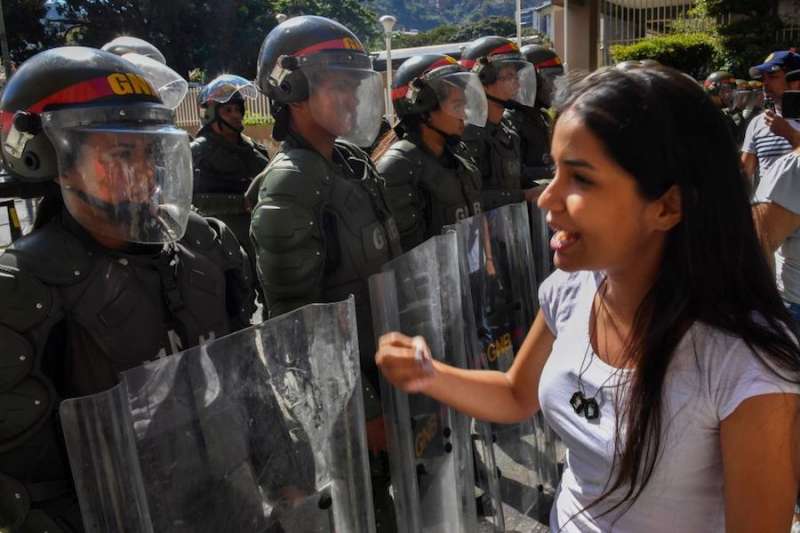The Justice and Peace Commission of the Venezuelan Bishops’ Conference is calling for an end to violence surrounding protests after Nicolas Maduro claimed to have won a second presidential term in a contested election.
A communique from the commission draws from words spoken by St. Oscar Romero in its title: “In the name of God and in the name of this suffering people, whose lamentations reach up to heaven…stop the repression.”
“Since January 22 the repression and violence have been escalated by State security forces and armed bands against people civically protesting,” the document says. “We deeply deplore so much death, pain and suffering of our people. The toll of injured, dead, arbitrarily detained, tortured and persecuted throughout the land violates the dignity and human rights of the citizens. It is a clamor that cries out: Stop the repression.”
At least 26 people have died in the massive protests taking place around the country in the last week, the Venezuelan Observatory on Conflict reported, based on information gathered from morgues, hospitals and courts.
Since Maduro succeeded Hugo Chávez as president of Venezuela in 2013, the country has been marred by violence and social upheaval. Under the socialist government, the country has seen severe shortages of basic goods, with inflation reaching an estimated 1.3 million percent last year, according to the National Assembly. Some 3 million people have emigrated since 2014.
Maduro's swearing in for a second term as president earlier this month has prompted a recent wave of protests around the country. Maduro won a May 2018 presidential election which was boycotted by the opposition and has been rejected by much of the international community.
The bishops of Venezuela, who say Maduro’s second president term is illegitimate, have voiced support for peaceful opposition demonstrations, calling them a “sign of hope” for necessary democratic change. Some bishops have taken part in the marches. The bishops’ Justice and Peace Commission has also urged prayer “that the constitutional order is restored and we achieve a spiritually and materially prosperous nation.”
At one of the opposition protests on Jan. 23, Juan Guaidó, president of the National Assembly, proclaimed himself “interim president of Venezuela.” He pledged a transitional government and free elections.
Soon afterwards, U.S. president Donald Trump said he recognized Guaidó as president, saying the National Assembly is the sole “legitimate branch of government” in Venezuela and that Maduro's presidency is “illegitimate.” Colombia, Brazil, Peru, Ecuador, and Costa Rica are among the other nations that have recognized Guaidó.
In response, Maduro announced that he was breaking diplomatic relations with the United States and closing the Venezuelan embassy and all its consulates in the U.S.
In the Jan. 25 communiqué, members of bishops’ conference Justice and Peace Commission called on the government to respect “the lives and safety of all Venezuelans including those civically protesting” and demanded “the cessation of the violation of human rights and the guarantee of all the rights of citizens.”
They also implored security forces to remember that they are not obligated to follow orders to “violate human rights and commit crimes against humanity.”
“We appeal to all Venezuelans to not respond with violence to the various provocations to which you are subjected,” they asked, calling on Mary, Mother of the Church and Queen of Peace to pray for Venezuela.
This article was originally published by our sister agency, ACI Prensa. It has been translated and adapted by CNA.

